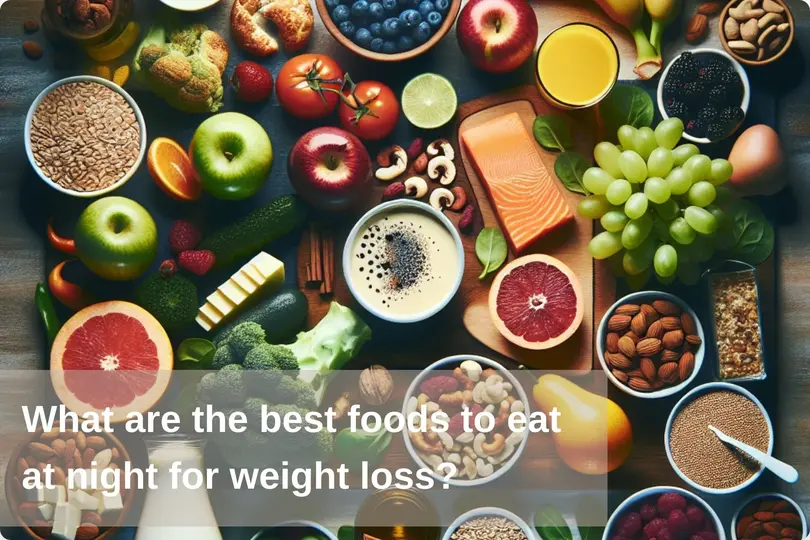Nutrition Profile: A Comprehensive Analysis
Hard-boiled eggs are a nutritional powerhouse, offering a wide range of benefits packed into a convenient and versatile form. This article explores the detailed nutritional profile of hard-boiled eggs, their health benefits, potential drawbacks, and various ways to incorporate them into your diet.
Introduction
Eggs have long been a staple in diets around the world, valued for their rich nutrient content and versatility. When boiled, eggs become a convenient, portable, and easy-to-prepare source of high-quality nutrition. Understanding the nutritional composition of hard-boiled eggs can help you make informed dietary choices that support overall health and wellness.
Macronutrient Composition
Calories:
A single large hard-boiled egg contains approximately 77 calories, making it a low-calorie food suitable for weight management and a healthy snack.
Protein:
Hard-boiled eggs are an excellent source of high-quality protein, providing about 6.3 grams per large egg. This protein includes all nine essential amino acids, making eggs a complete protein source ideal for muscle maintenance and repair.
Fats:
One large hard-boiled egg contains about 5.3 grams of fat, which includes:
- 1.6 grams of saturated fat
- 2.0 grams of monounsaturated fat
- 0.7 grams of polyunsaturated fat
Eggs also provide small amounts of omega-3 fatty acids, which are beneficial for heart health.
Carbohydrates:
Hard-boiled eggs are very low in carbohydrates, with less than 1 gram per large egg. This makes them an excellent choice for low-carb and ketogenic diets.
Cholesterol:
One large hard-boiled egg contains about 186 milligrams of cholesterol. Despite this high content, research indicates that dietary cholesterol has a smaller impact on blood cholesterol levels for most people compared to saturated and trans fats.
Micronutrient Profile
Vitamins:
- Vitamin A: Important for vision, immune function, and skin health. One large egg provides about 6% of the Recommended Daily Allowance (RDA).
- Vitamin B2 (Riboflavin): Crucial for energy production and cellular function, eggs provide approximately 15% of the RDA.
- Vitamin B12 (Cobalamin): Essential for red blood cell formation and neurological function, one large egg covers about 9% of the RDA.
- Vitamin D: Supports bone health and immune function. Eggs are one of the few natural food sources of vitamin D, providing about 5% of the RDA.
- Vitamin E: Acts as an antioxidant and supports immune function. Eggs contain small amounts of vitamin E.
- Folate: Important for DNA synthesis and repair, one large egg provides about 6% of the RDA.
- Vitamin B5 (Pantothenic Acid): Necessary for synthesizing coenzyme A, essential for fatty acid metabolism, eggs supply around 7% of the RDA.
Minerals:
- Selenium: An antioxidant that helps protect cells from damage, one large egg provides about 22% of the RDA.
- Phosphorus: Vital for bone health and energy production, eggs provide about 9% of the RDA.
- Calcium: Important for bone health, eggs contain small amounts of calcium but are not a significant source.
- Zinc: Supports immune function and protein synthesis, eggs contain small amounts of zinc.
- Iron: Necessary for the production of hemoglobin, eggs provide a small amount of iron, primarily in the yolk.
Health Benefits
Weight Management:
Hard-boiled eggs are highly beneficial for weight management due to their high protein content, which promotes satiety and helps reduce overall calorie intake. The combination of protein and fat helps control hunger, making eggs a satisfying snack or meal component.
Scientific Evidence:
Studies have shown that consuming eggs for breakfast can increase feelings of fullness and reduce calorie intake at subsequent meals compared to carbohydrate-based breakfasts.
Muscle Mass and Strength:
The high-quality protein in hard-boiled eggs supports muscle growth and repair, making them beneficial for athletes and individuals engaged in strength training. Including eggs as a post-workout snack can help provide the necessary nutrients for muscle recovery and growth.
Bone Health:
Eggs contain nutrients that support bone health, including vitamin D, phosphorus, and protein. While not a major source of calcium, the presence of other bone-friendly nutrients makes eggs a valuable addition to a diet aimed at maintaining bone health.
Brain Health:
Eggs are rich in choline, a nutrient essential for brain health and development. Choline is a precursor to acetylcholine, a neurotransmitter involved in memory and learning. One large egg provides about 147 milligrams of choline, covering 27% of the RDA for women and 20% for men.
Impact on Mental Health:
Adequate choline intake is associated with improved memory and cognitive function. Pregnant women, in particular, can benefit from consuming eggs as choline supports fetal brain development.
Eye Health:
Eggs contain lutein and zeaxanthin, antioxidants important for eye health. These compounds help protect the eyes from damage caused by blue light and reduce the risk of age-related macular degeneration. The fat in eggs also helps increase the absorption of these fat-soluble antioxidants.
Heart Health:
While eggs contain cholesterol, they also provide beneficial nutrients like omega-3 fatty acids, which support heart health. For most people, consuming eggs in moderation does not increase the risk of heart disease. However, individuals with specific health conditions should consult their healthcare provider.
Immune System Support:
Eggs are a good source of several vitamins and minerals necessary for maintaining a healthy immune system, including vitamin A, vitamin D, and selenium. These nutrients play a role in enhancing the body’s immune response and protecting against infections.
Energy Production:
Eggs contain various B vitamins, including vitamin B12, vitamin B2 (riboflavin), and vitamin B5 (pantothenic acid), which are essential for energy production. These vitamins help convert food into energy, supporting overall vitality and reducing fatigue.
Potential Drawbacks
Cholesterol Concerns:
For years, eggs were criticized for their high cholesterol content. However, current research suggests that dietary cholesterol has a minimal impact on blood cholesterol levels for most people. Individuals with specific health conditions, such as hypercholesterolemia or diabetes, should monitor their cholesterol intake.
Allergies:
Egg allergies are common, especially in children. Symptoms can range from mild to severe and may include skin reactions, respiratory issues, and digestive problems.
Contamination Risks:
Eggs can sometimes be contaminated with Salmonella, a type of bacteria that can cause food poisoning. To reduce the risk, it is important to store eggs properly, cook them thoroughly, and practice good kitchen hygiene.
Incorporating Hard-Boiled Eggs into Your Diet
Hard-boiled eggs are incredibly versatile and can be incorporated into the diet in various ways:
Snacks: Hard-boiled eggs are a convenient and protein-rich snack.
Salads: Slice or chop hard-boiled eggs and add them to salads for extra protein and texture.
Sandwiches: Use hard-boiled eggs as a filling for sandwiches or wraps.
Breakfast: Pair hard-boiled eggs with whole grain toast and vegetables for a balanced breakfast.
Deviled Eggs: Make deviled eggs for a flavorful and protein-packed appetizer.
Egg Salad: Combine chopped hard-boiled eggs with a little mayonnaise, mustard, and seasoning for a quick and tasty egg salad.
Conclusion
Hard-boiled eggs are a nutritional powerhouse that provides a wide range of health benefits. They are an excellent source of high-quality protein, essential vitamins, and minerals, making them a valuable addition to any diet. Their versatility allows for easy incorporation into various meals and snacks, supporting weight management, muscle growth, bone health, brain function, eye health, and immune system support. While there are some potential drawbacks, such as cholesterol concerns and allergies, the benefits of including hard-boiled eggs in your diet far outweigh the risks for most people. To maximize the nutritional benefits, enjoy hard-boiled eggs as part of a balanced and varied diet.




